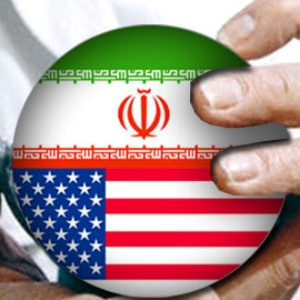Detente amid Tensions
300.jpg)
"Relations with United States? Why not?" This is the latest positive signal sent by an Iranian official. Mojtaba Samareh Hashemi, senior advisor of the Iranian president Mahmoud Ahmadinejhad, has stated that if its interests are recognized, Tehran is ready to resume relations with Washington. Iranian officials’ statements during the recent weeks have once again fueled speculations about a diplomatic shift in Iran-U.S. relations.
Of course Samareh Hashemi’s statements about relations with the United States are so vague that can not be considered as a sign of policy shift by the Iranian government regarding the United States. However, collocating his remarks with other positive stances of Iranian officials indicates a meaningful turn.
Some Western diplomats believe that Tehran is flashing the green light for U.S. to defuse increasing tensions over its nuclear program. By this, Tehran wants to earn United States’ trust about the peacefulness of its nuclear program.
However, to trust Tehran’s nuclear program the United States has set conditions that Iranian officials will not accept at any rate. U.S. Secretary of State Condoleezza Rice has repeated that she is ready to negotiate with her Iranian counterpart anytime, anywhere if Tehran halts its nuclear fuel cycle.
To encourage Tehran stop uranium enrichment, United States sent a high-ranking official to Geneva talks for the first time, but Iran still refuses to stop the uranium enrichment process. Tehran of course welcomed William Burns’ attendance, and Mahmoud Ahmadinejhad said that U.S. Undersecretary behaved ’in a dignified way’. However, Rice has expressed her dissatisfaction the Iranian delegation in Geneva and said that Iran had given the run-around to 5+1 envoys during the talks.
So it seems that attendance of U.S. senior official in nuclear negotiations has had a reverse effect, stirring up United States’ anger instead of reducing mistrust between the two countries.
The question for some American diplomats is that why does Tehran send promising signals on ending enmity on the on hand and refuses to compromise at a minimum level on the other hand? They want to know if Tehran is searching for the best time for compromise or the green lights are misleading, aimed only to confuse White House officials.
Last month Iran showed a positive reaction to rumors about establishment of U.S. interest section in Tehran. President Ahmadinejhad said that his administration will look at the proposal positively of it turns into an official request.
Also in last week, Esfandiar Rahim Mashaei, Vice-President and head of the Iranian Cultural Heritage Department, said that Iran was a friend of Israeli and American people. He quickly withdrew his remarks about the people of Israel, but people of the United States remained in his assumed circle of Iran’s friend.
Samareh Hashemi and Rahim Mashaei are two of Ahmadinejhad’s closest allies and their stance can be regarded as Ahmadinejhad’s viewpoint to some extent. However, it is not yet clear what intention behind successive sending of friendship signals to America is.
In Iran, some influential clerics, and the group known as conservative principlists have reacted to frequent signals sent by Ahmadinejhad’s administration to Americans. They say that sensitive issues such as establishing relations with United States are in hands of the Supreme Leader and executive officials can’t decide personally on these matters. So it seems that there is no consensus among Iranian political groups about ending hostilities with America, and that has decreased the significance of Tehran’s green lights to United States.
Political gestures of the recent years made by Iranian and American officials have been initially introduced by media as a serious diplomatic turn, but the history of Iran-U.S. relations shows we shouldn’t be optimist their efficiency.
Khatami’s inclination to shorten the ’wall of mistrust’ between the two countries, Clinton administration’s apology for United States’ role in toppling the government of Dr. Mosaddeq and the letter Ahmadinejhad sent for Bush have been the most significant gestures of these years, but none have managed to break the ice between Iran and America and it seems unlikely that the recent remarks by Iranians have any special effects on bilateral ties.
And let’s not forget that radically anti-West administration of Ahmadinejhad will face an internal paradox if it continues sending friendship messages to United States. It can neither convince its supporters to change their opinion about relations with the United States, nor can it gain America’s trust easily by flashing green lights.

